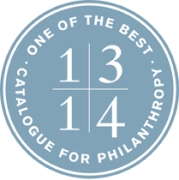Congratulations, everyone! We have HUGE victories to celebrate this week! On Wednesday, May 22nd the Council held their first vote on the budget, passing the Budget Request Act into law. We are thrilled to announce that we won $128 million for the programs that low income and no income DC residents need! (Including $108 million in NEW investments.) We also won important policy changes that strengthen human rights in DC.
We want to recognize the very many different kinds of contributions each of you made in this budget season that resulted in all that we won. Thank you. Whether you sent emails, tweeted, made phone calls, helped us plan, painted props, lobbied Council members, participated in actions or helped in any other way, this victory is yours.
Below is the full scope of what, in collaboration with our members, supporters and allies, we fought for and won this year. As you well know, this budget does not end poverty, homelessness or hunger. There are many critical programs that remain badly damaged after the Recession and still need our advocacy and organizing, and at the end of this email we’ve outlined where we must continue the fight. But we have all earned a moment to recognize the incredible victories we’ve accomplished this year and to celebrate them.
WHAT WE’VE WON
RIGHT TO HOUSING:- $63 million increase for the Housing Production Trust Fund (plus $20 million to end transfers from the Trust Fund to pay for the Local Rent Supplement program)
- $5 million for the project/sponsor-based Local Rent Supplement program to develop affordable housing for people with very low incomes
- $1.75 million for tenant-based Local Rent Supplement program, allowing 120 additional families to get affordable housing vouchers
- $2.6 million to help create a centralized affordable housing database
- $2.2 million for Permanent Supportive Housing
- $1 million for Emergency Rental Assistance plus $500,000 to start a pilot program for individuals
- $1 million for the Rapid Re-Housing program plus $400,000 to start a pilot program for individuals
- $1 million for the Home Purchase Assistance program
- $1.5 million for homeless youth shelter/housing programs
- $486,000 for shelter beds for homeless LGBTQ youth
- $752,000 to implement the Workplace Fraud Act, strengthening protections for workers
- $500,000 to give Interim Disability Assistance (IDA) to an additional 150 DC residents with disabilities
- $4 million to fund exemptions that give families a break from the 60-month time limit on Temporary Assistance for Needy Families (TANF) benefits for issues including domestic violence, illness, enrollment in an education or job training program, and caring for a family member with a disability, among others.
- Slowed down the timing of TANF benefit reductions for families with barriers to work
- $9 million to strengthen mental health reimbursement rates, averting lay-offs and reductions in mental health services
- $3 million for housing for victims of domestic violence
- $5 million increase for services that support domestic violence victims and victims of crime
- $5 million increase to the Office on Aging, including $3.5 million in operating funds and $1.5 million in capital funds
- Implemented the Schedule H Property Tax Relief Act of 2012
- Amendments to the Homeless Services Reform Act (that would make it harder for people to get into shelters and easier to kick them out) were removed from the budget. The amendments will be given their own hearing which will allow public input and further examination of the amendments’ potential impact.
- Language was added to the Budget Support Act that strengthens wage and hour enforcement procedures.
- A requirement that when a family stops using an affordable housing voucher, that voucher will be re-issued to another family. (The Mayor’s administration had been allowing those vouchers to remain unused until this legislation.)
As we anticipate the revenue forecast in June that will reveal what new money DC has available, we must make sure the Council knows that we still need:
- $8.5 million for the Local Rent Supplement Program to move the 300 families out of DC General and help end homelessness for seniors and people living with HIV/AIDS
- $11.3 million for Permanent Supportive Housing to help end homelessness for chronically homeless seniors and people living with HIV/AIDS
- $20 million (over 4 years) for childcare subsidies
- $3.4 million for the Interim Disability Assistance program
- $5 million for “Opportunity Youth” program
- $4 million more for Adult and Family Education
- Restore the out-of-state bonds tax for bond holders with very high incomes in order to prevent using taxpayer money for what is effectively being used as a tax shelter for millionaires.
- Reform the income tax filing rules for two-income households to ensure that all DC households with income above $350,000 pay the new rate of 8.95%.
- Eliminate the 2015 sunset date for the 2011 income tax increase on income above $350,000 and make the 8.95% rate permanent.
- Paid sick leave for restaurant workers
- $5.1 million increase in youth homelessness funding
- $1.5 million to fully fund TANF time limit exemptions for parents with infants (under 1 year old)





